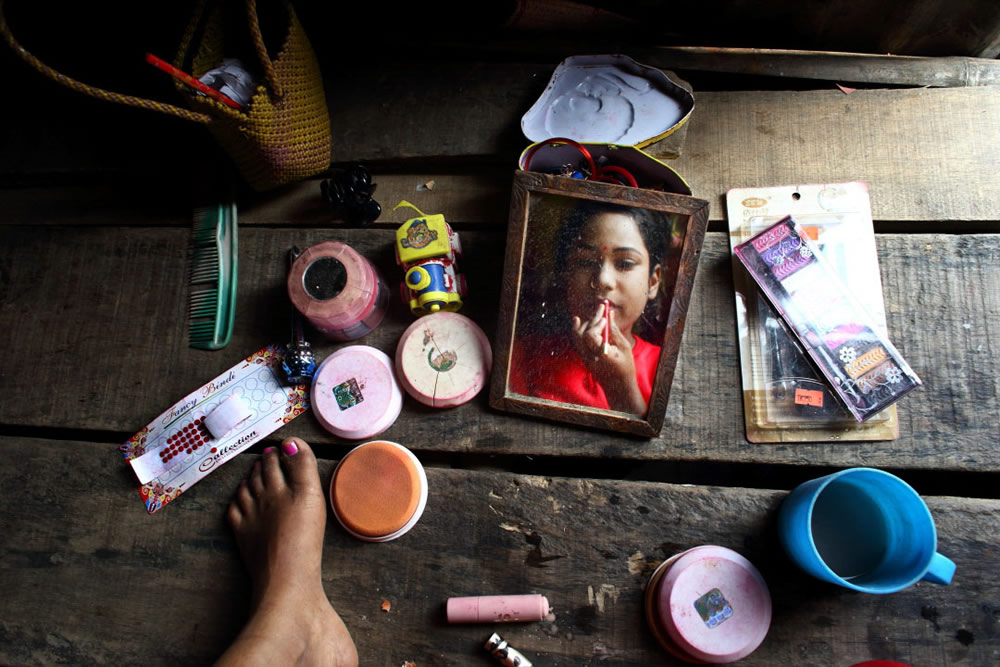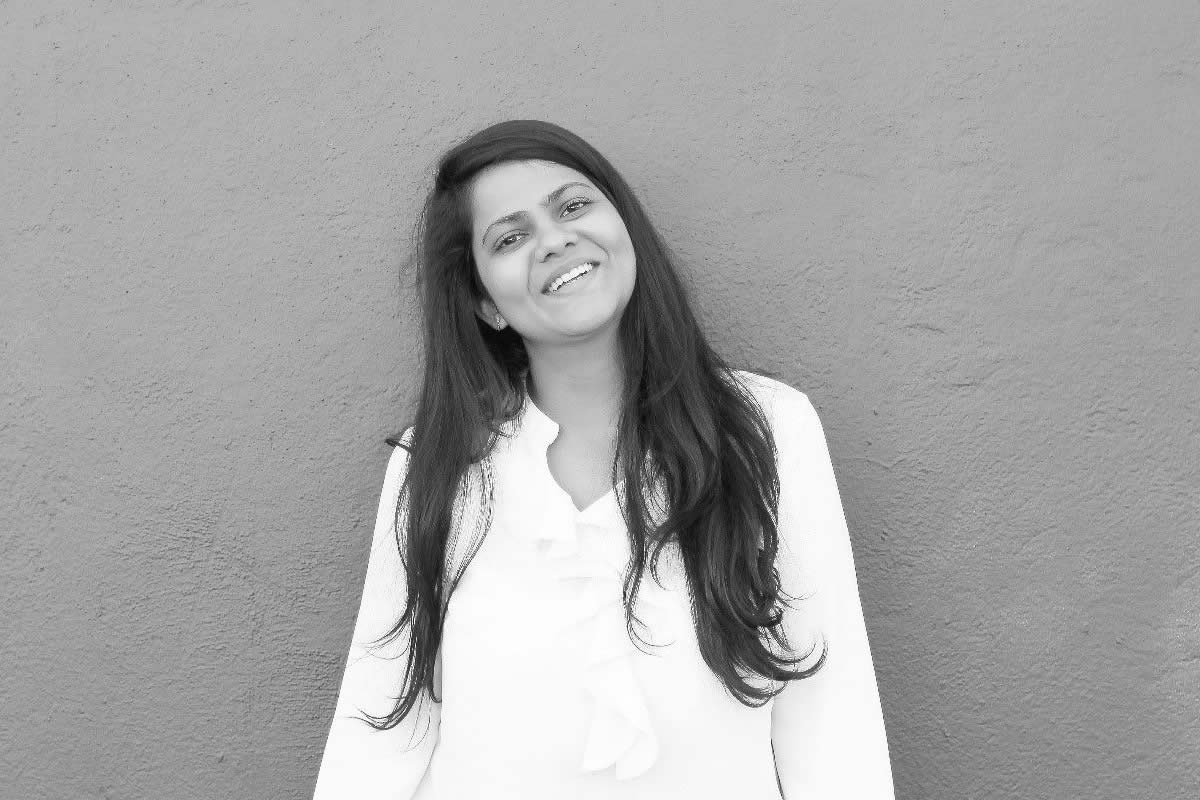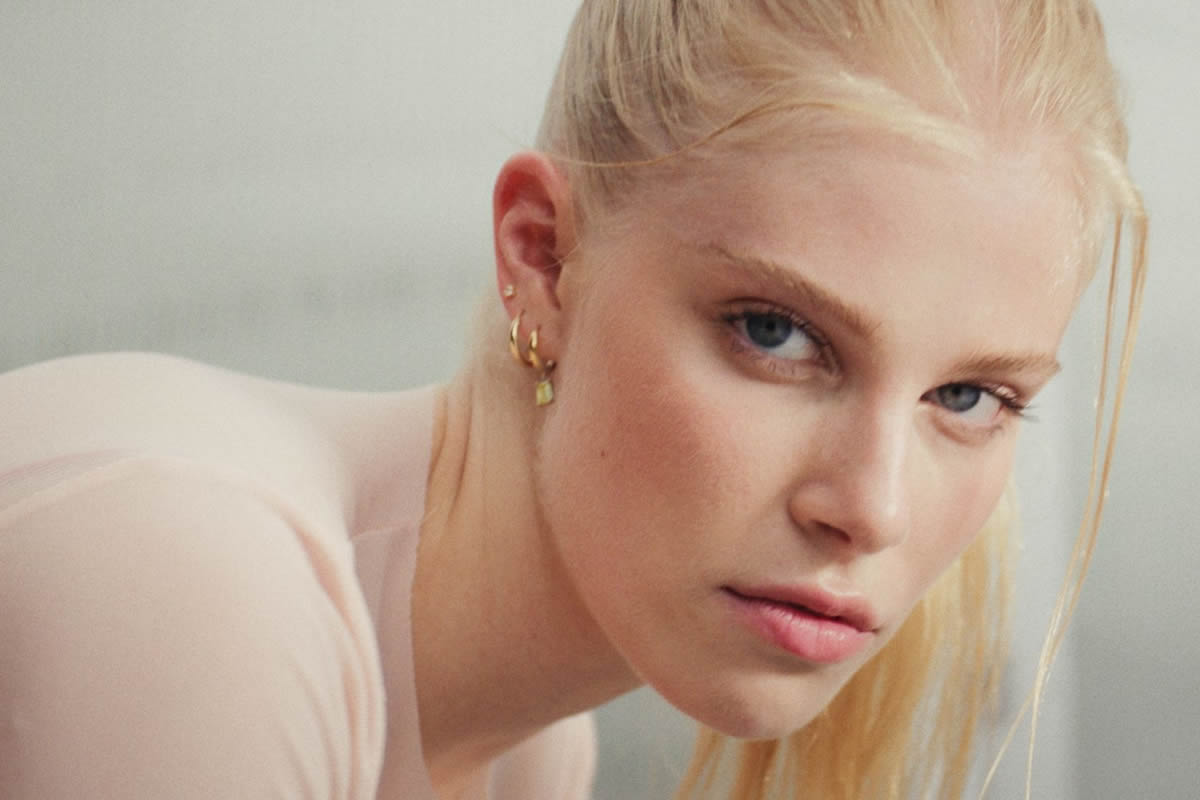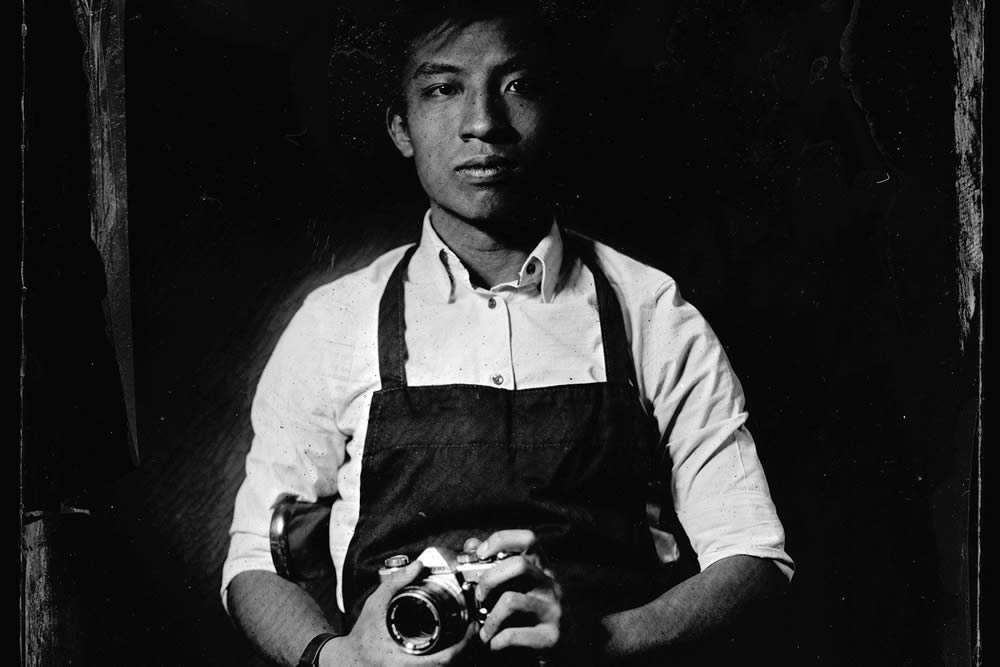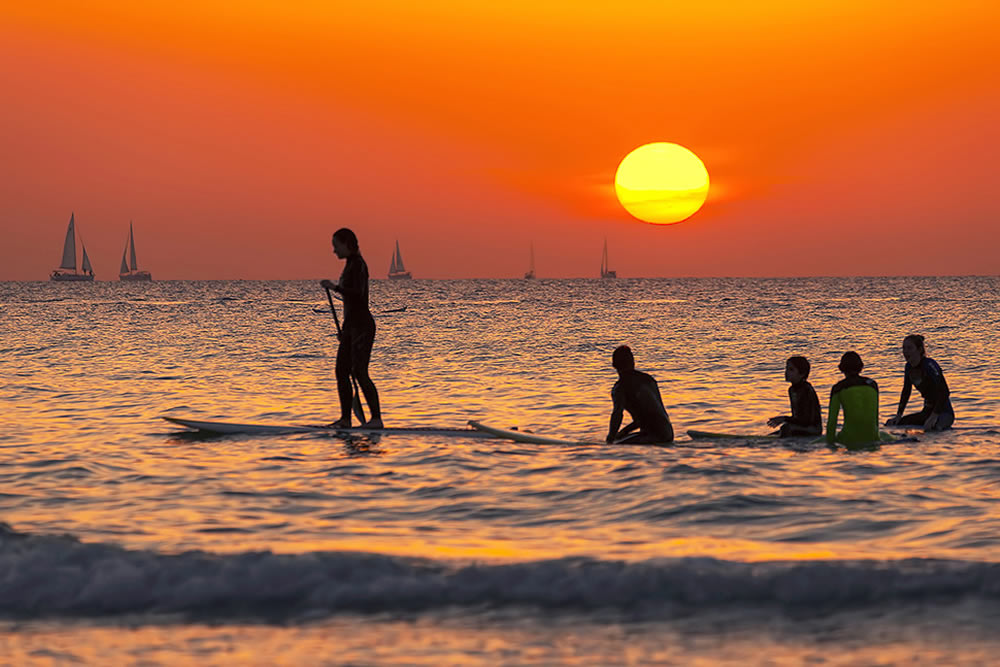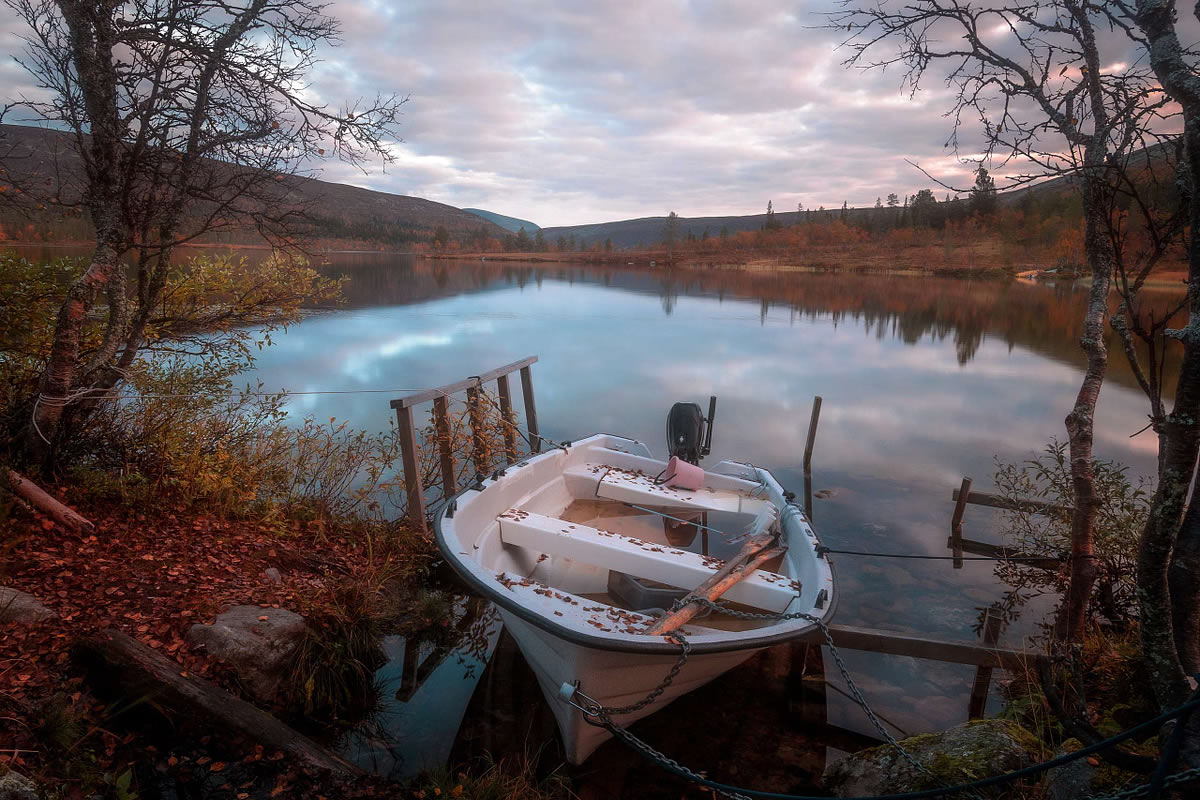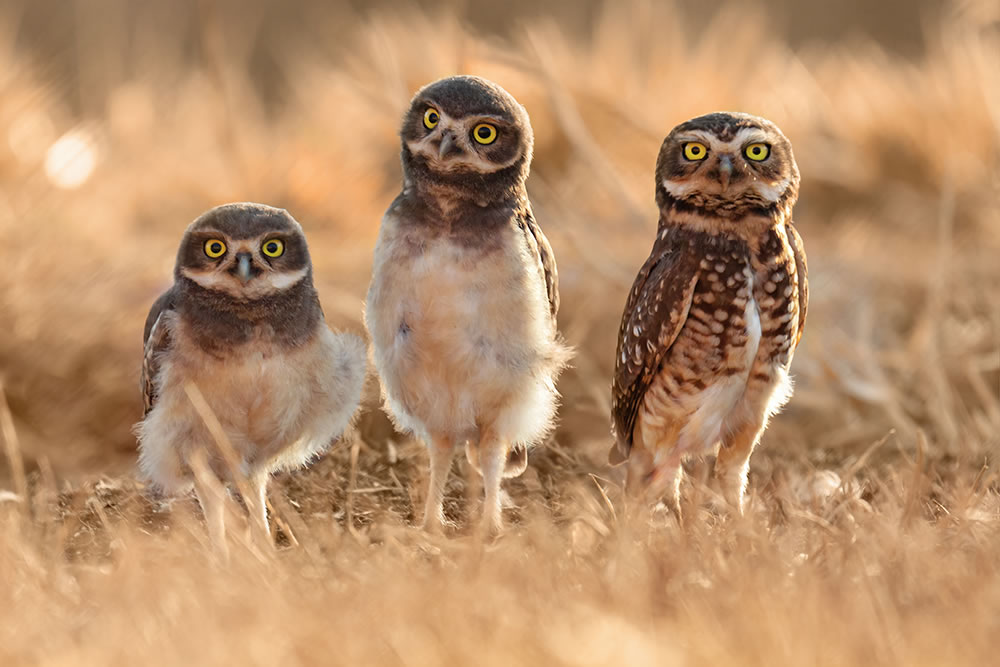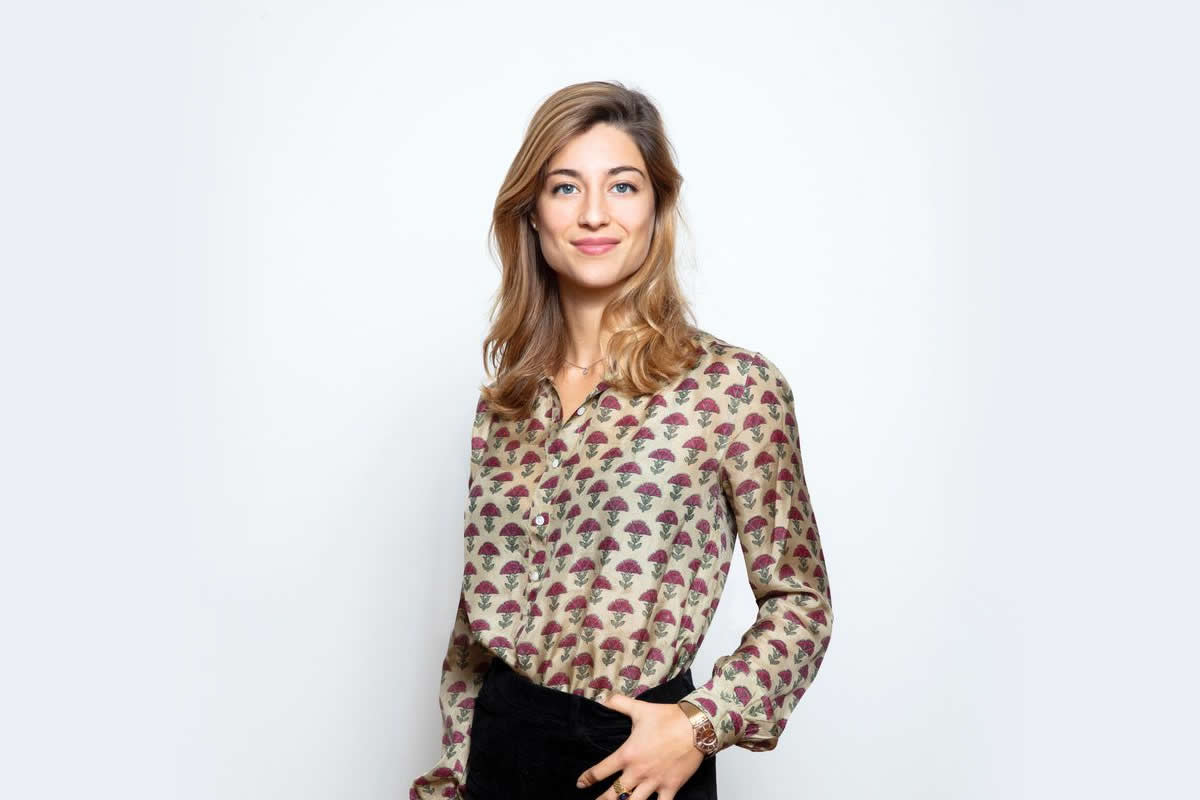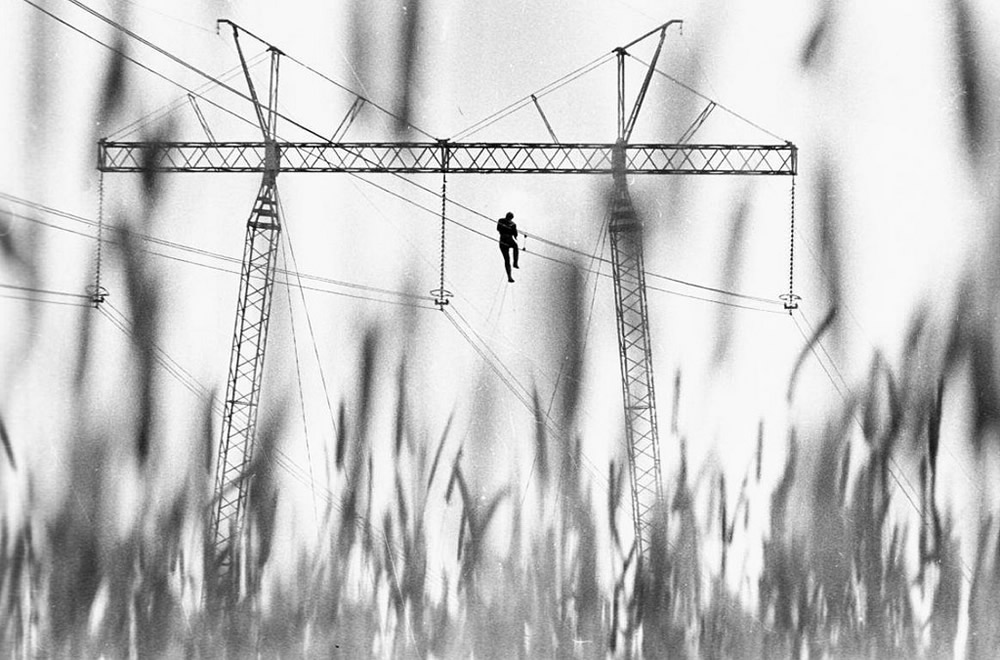Fabeha Monir is a Photojournalist from Bangladesh. She is working for Getty Images and represented by Women Photograph. Also, she writes for BISTANDSAKTUELT- news on aid and development for past six years. Her work mostly focuses on Violence against women, Human rights issues, Global poverty, Social development, War and civil society, Genocide, Cultural and heritage conservation, Mysticism, Indigenous cultures, Migration and forced exile, Oppression & dispossession in marginalized communities.
In her words “Photography changed me most at my unguarded moments. I embraced minimalism, toxic-free life; I have learned there is a communication beyond word and vision. When you enter into a room, people just don’t look at you, they can immediately ‘feel’ you. That’s your true identity. Photography created that existence for me. Apart from that, I embraced the truth. ‘Truth’ is not easy in this commercial, narcissistic-contemporary world. But once you get habituated of speaking truth, life will start bringing you miracles.”
Thanks, Fabeha for this inspiring interview. Please read on…
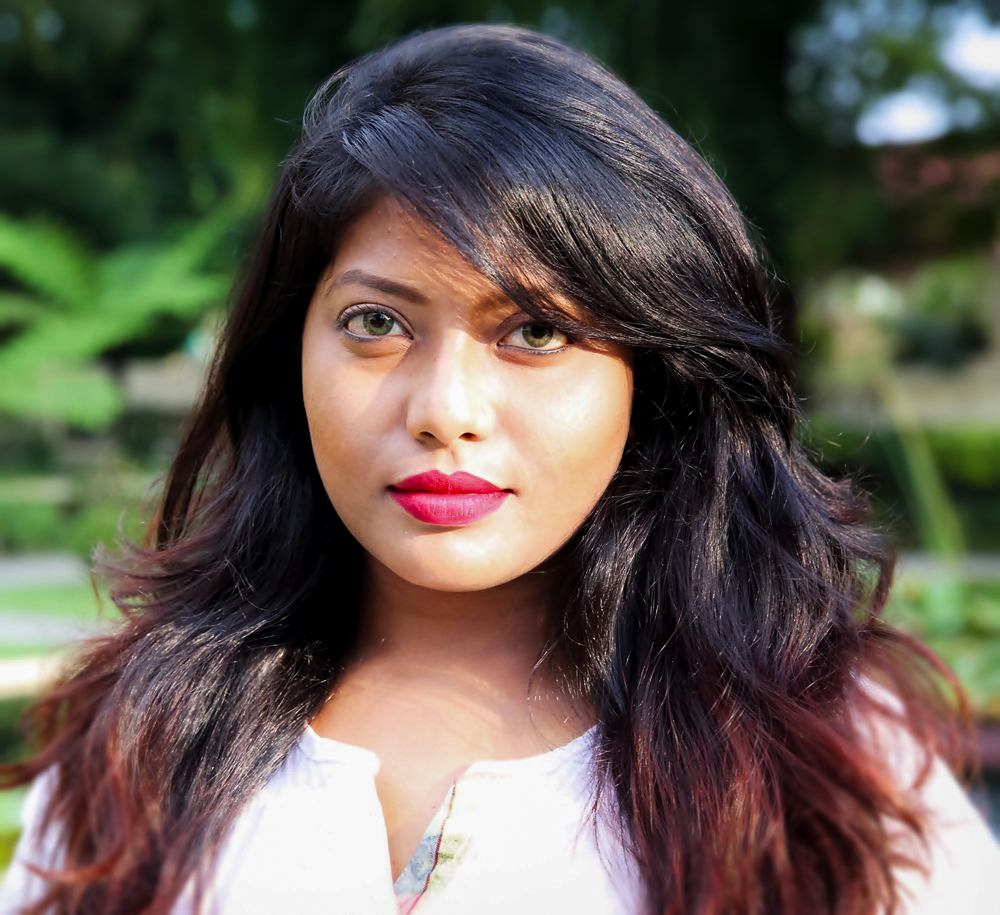
Could you please introduce yourself?
I am professionally journalist and photographer, an activist forever by innate attributes. As a photojournalist, I work for Getty Images and represented by Women Photograph. I have been writing for BISTANDSAKTUELT- news on aid and development, Norway, almost six years now. My creative platform focuses on vital themes of violence against women, human rights issues, global poverty, social development, war and civil society, genocide, cultural and heritage conservation, mysticism, indigenous cultures, migration and forced exile, oppression & dispossession in marginalized communities.
I travel in the different layers of myself and simultaneously focus on the external milieu that exists – in fact, echo the obsession and realities of cultural, political, creative, social, intellectual, spiritual and humanistic spheres in the catastrophes of humanity. I fancy hand-written letters, books, more on photography and meaningful conversations blended in the skill of polemics with minds that intrigue mine! I could be found sipping chai in old bazaars and other times whirling in Sufi dergahs or breathing in the landscape of Asia. I have a heart and mind, thus I have entered my own realm. I am only a corpus of experiences, mistakes, and aspirations.

Could you please share your childhood memories towards the arts?
My childhood was cinematic. I was born in riches but I experienced hunger. I refused to take my inherited resources and lived a life on my own. The climate of my home was a mixture of sunshine and hurricane. Domestic violence can leave an intense scar on any child’s life. There was love for me, but I was deprived of peace. That led me to take refuge in the arts. I displaced my pain into a poem, into a melody, into a photograph. That is why I want to be present during powerful human emotion.
The camera allows me to experience that life. The people I photograph have their own tragedies yet they are blindfully beautiful. I feel my life experiences help me to form the silent friendship with these people I photographed. Our collective scars become our collective freedom. I must say, I am made of all the people I’ve encountered and all the things I have experienced.
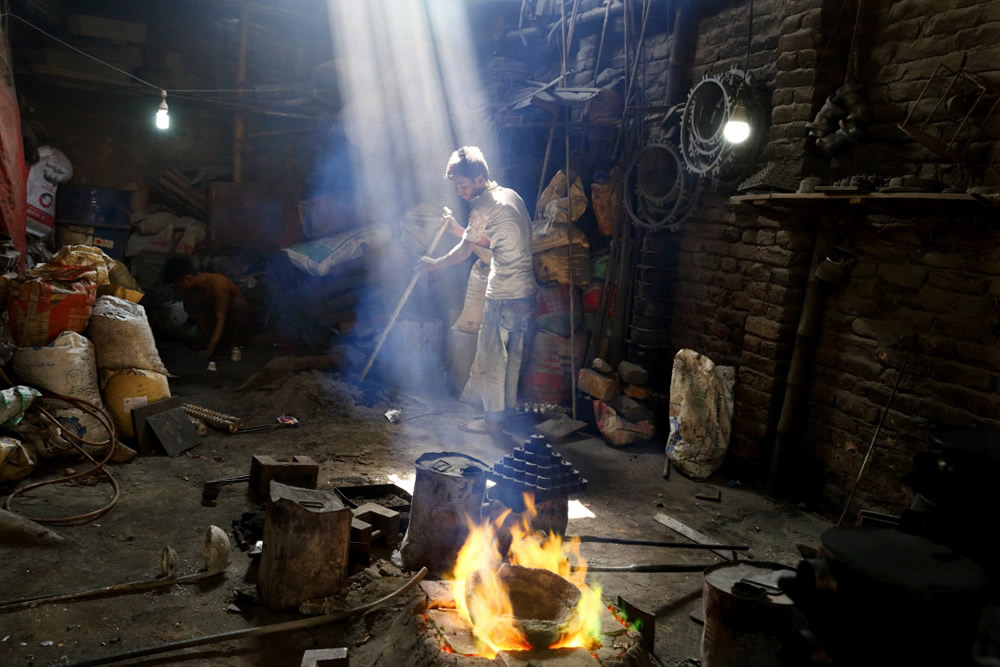
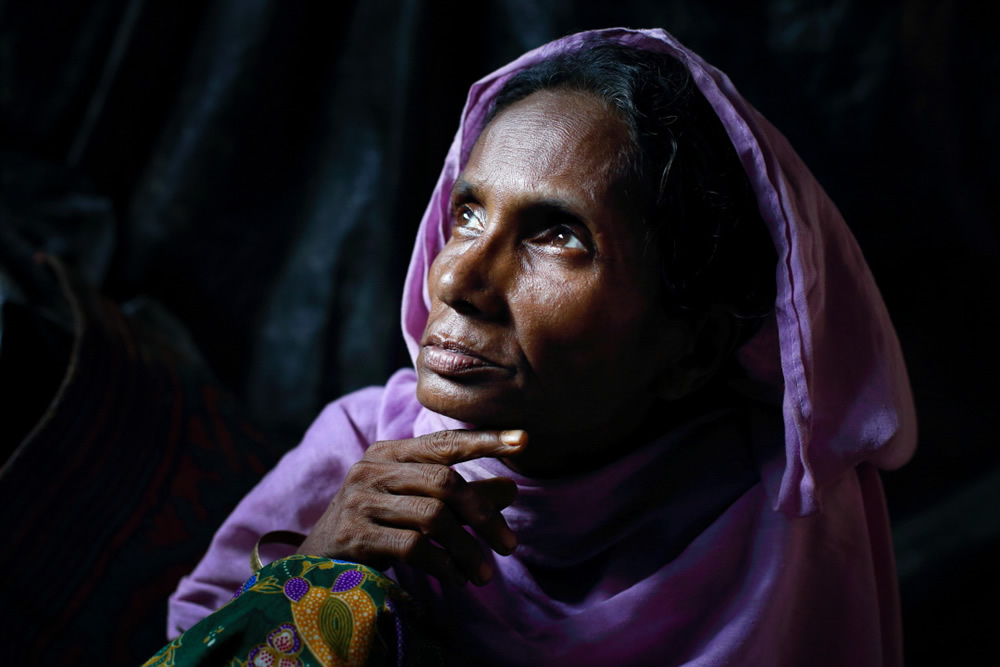
What first drew you to photography and how did you discover it?
At the shore of the Aegean sea, I spent days and nights while documenting the heart moving stories of refugee children. From Mitiline to Idomeni my journey and experiences left me restless. The human crisis and devastation provoked my instinct. That drive forces me to look through my camera. At Idomeni I was walking with thousands of people who were going towards the border, I was following a family, the mother had four children with her, and the youngest was one year old. I took two of them and helped the mother to walk. We walked almost three hours together and at some point, I told her, everything is going to be okay. She paused for a while and tearfully pointed towards the camera and said, ‘These photographs bear witness, the story of our suffering.’ That very moment I discovered the power of the photograph, I understood no matter how committedly I write, that captured moment cannot be replaced with any word.
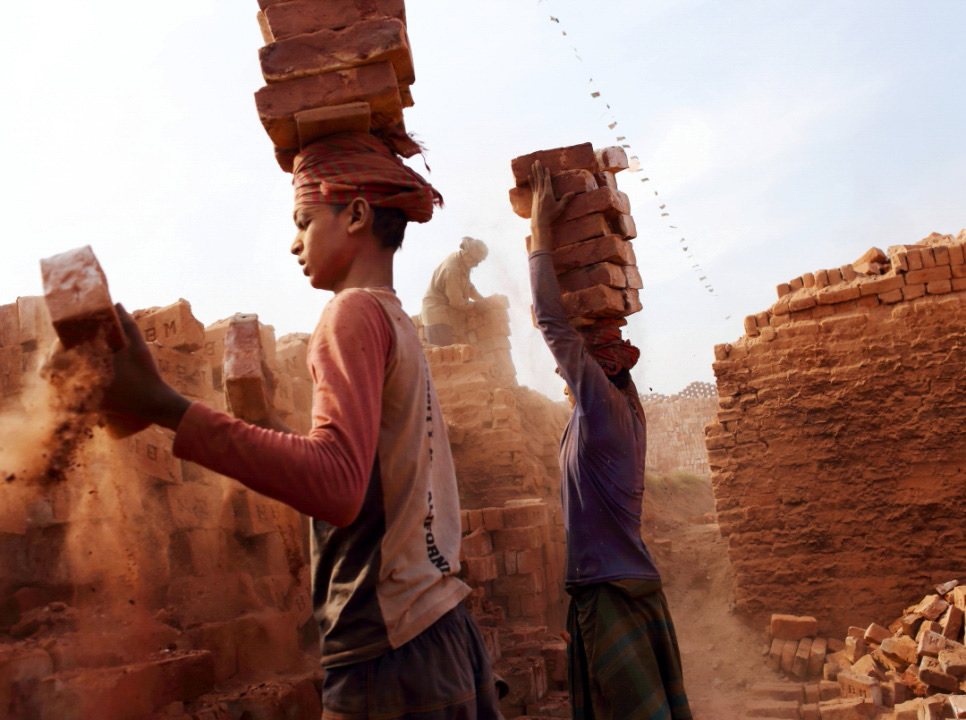
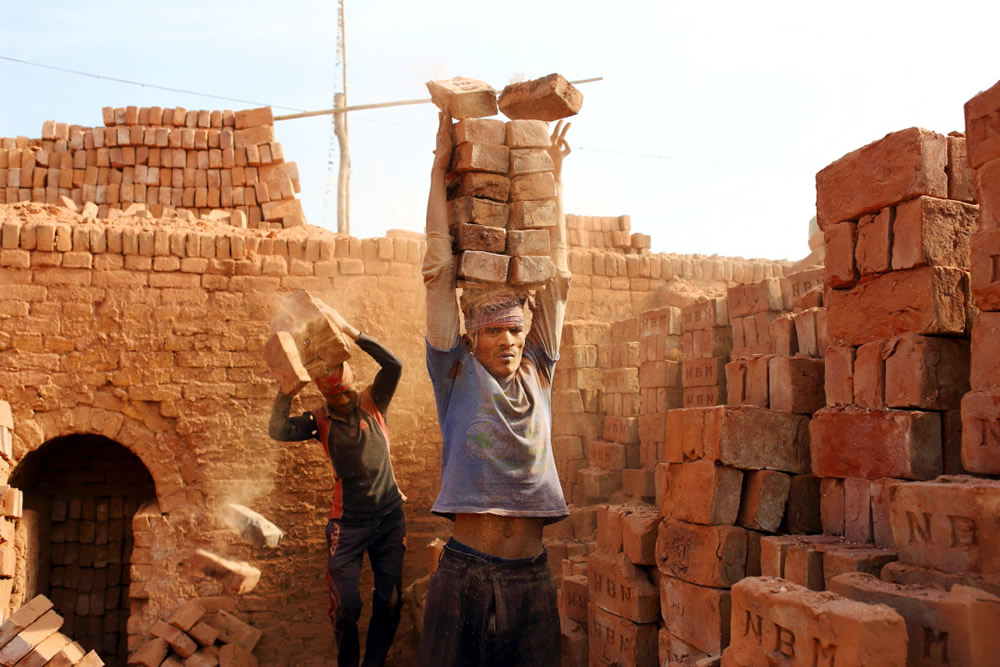
What difference does photography create in your life?
Photography changed me most at my unguarded moments. I embraced minimalism, toxic-free life; I have learned there is a communication beyond word and vision. When you enter into a room, people just don’t look at you, they can immediately ‘feel’ you. That’s your true identity. Photography created that existence for me. Apart from that, I embraced the truth. ‘Truth’ is not easy in this commercial, narcissistic-contemporary world. But once you get habituated of speaking truth, life will start bringing you miracles.
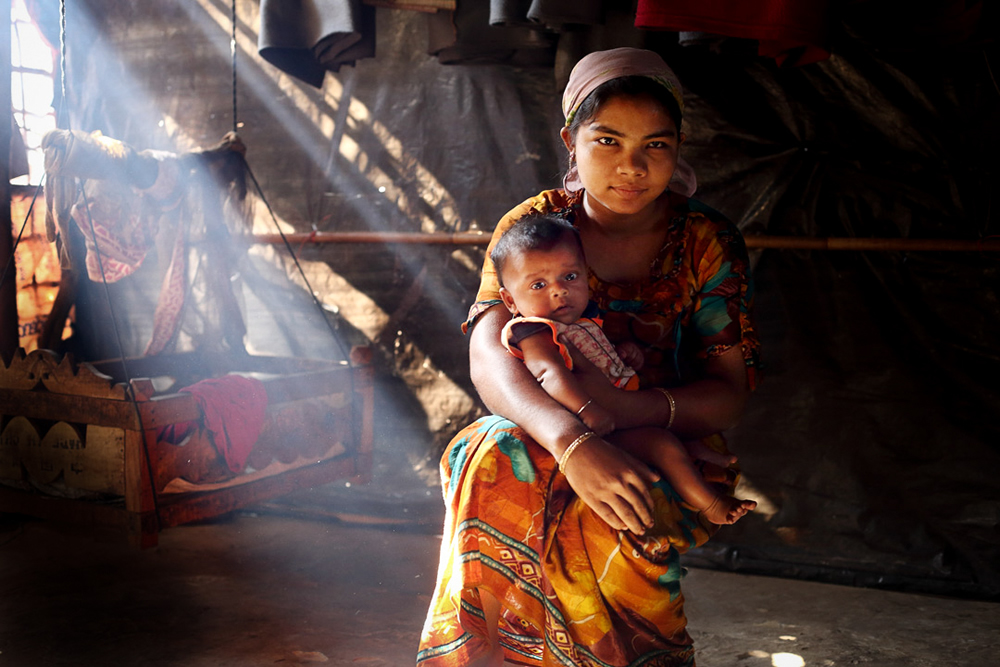
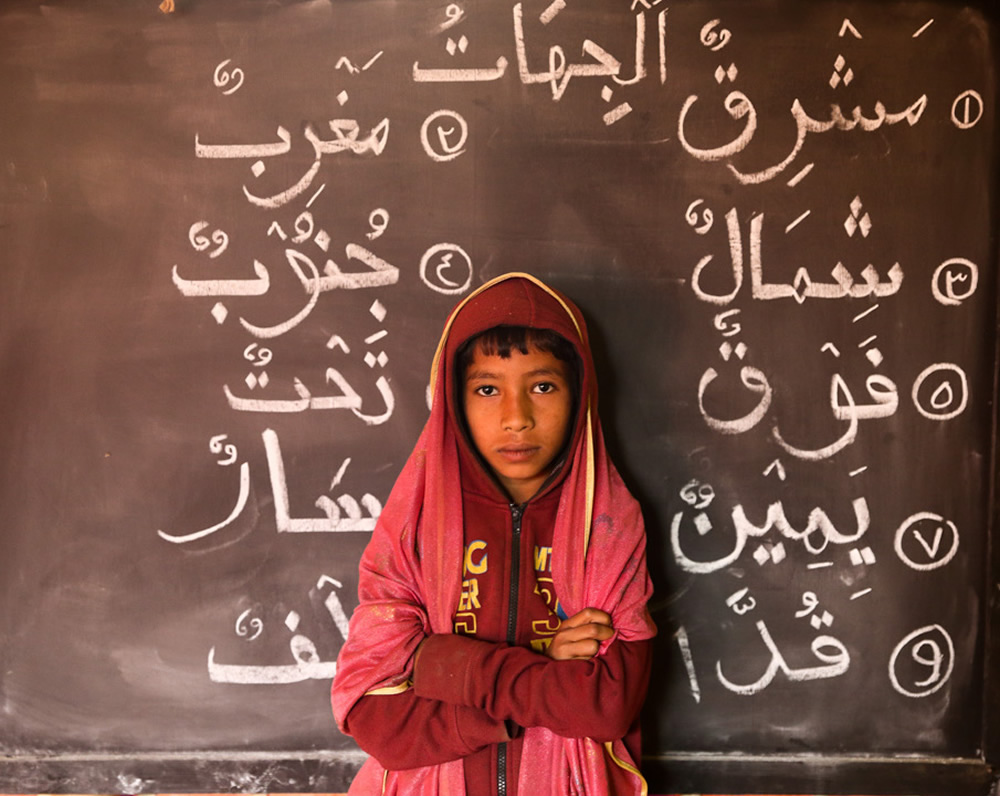
In your idea, what makes a good photograph?
A good photograph makes the viewer feel. Whether it’s anger, compassion, sadness, or any among a realm of human emotions one would hope upon viewing the content. That good photograph invites speculation, allowing the viewer to participate.
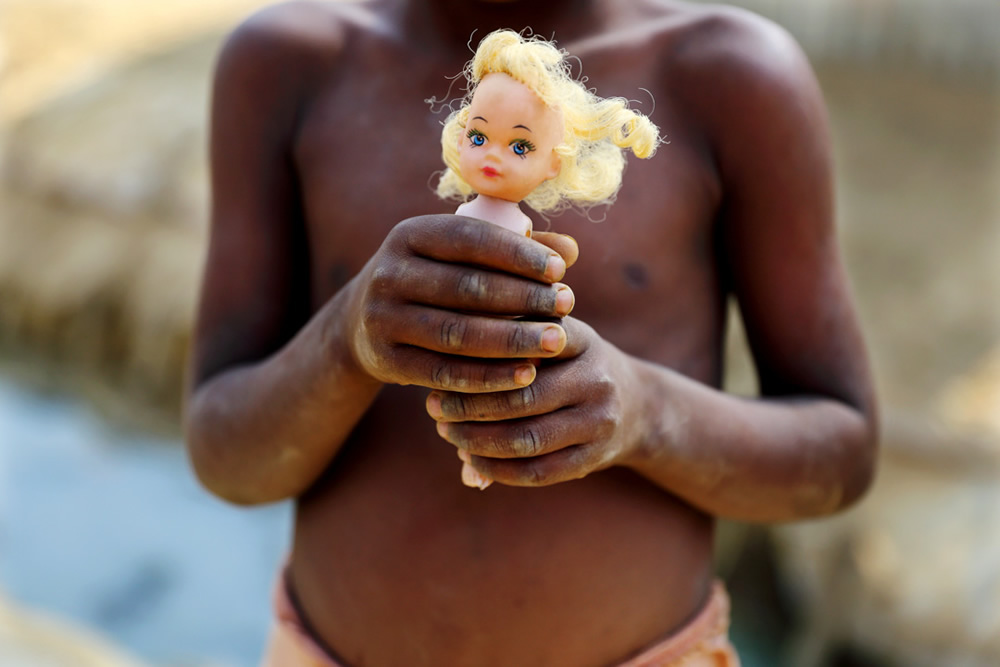
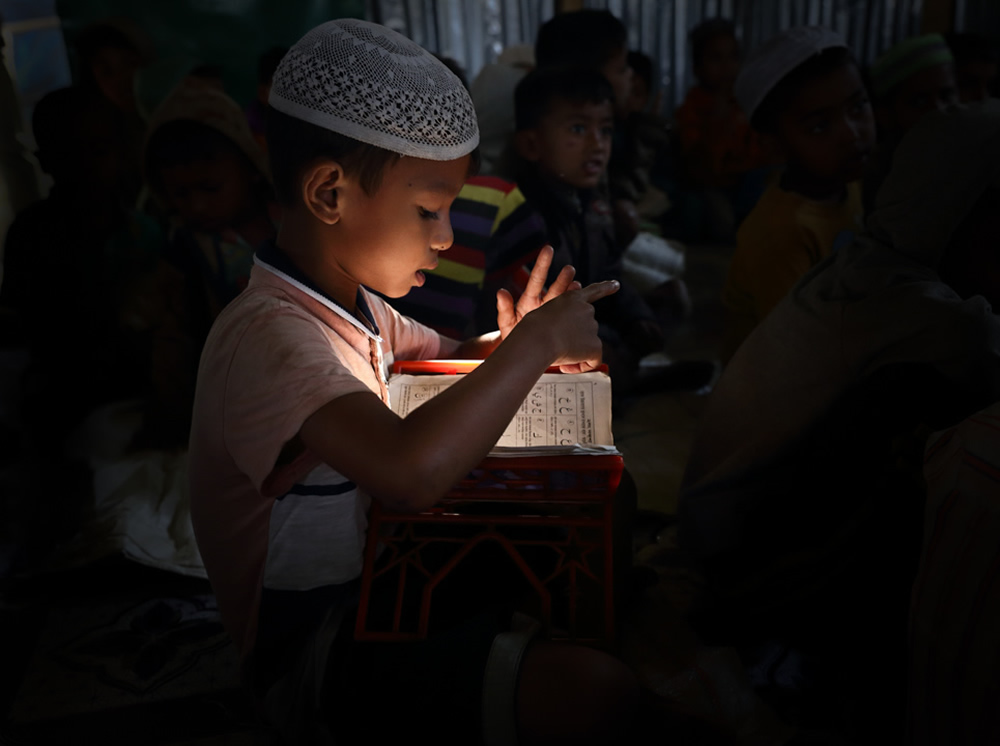
You have captured some amazing photo stories. Please share some interesting incident while you capturing them?
I travel to discover incredible human spirit at adverse places. I am on a journey to write what I see and capture what I feel. I have a privilege to enter into places that my male colleague may find difficult. On the other hand, it’s risky to travel alone. I always find it hard to work at night, but many of my projects demand to work at midnight.
I was covering my project ‘Sex in the City’ when the nightfall the client start to arrive. I was capturing those candid moments from distance when a group of drunken men arrived in the scene. The girl signaled me to hide and there was no place. At that point, someone pushed and covered me with a ragged blanket. I didn’t make a sound but immediately felt secure. The beggar woman who is the mother of all girls saved me affectionately. Without such love and support, no photo stories can be produced. No matter how far we go, we take these people with us, in our reflection they reflect.
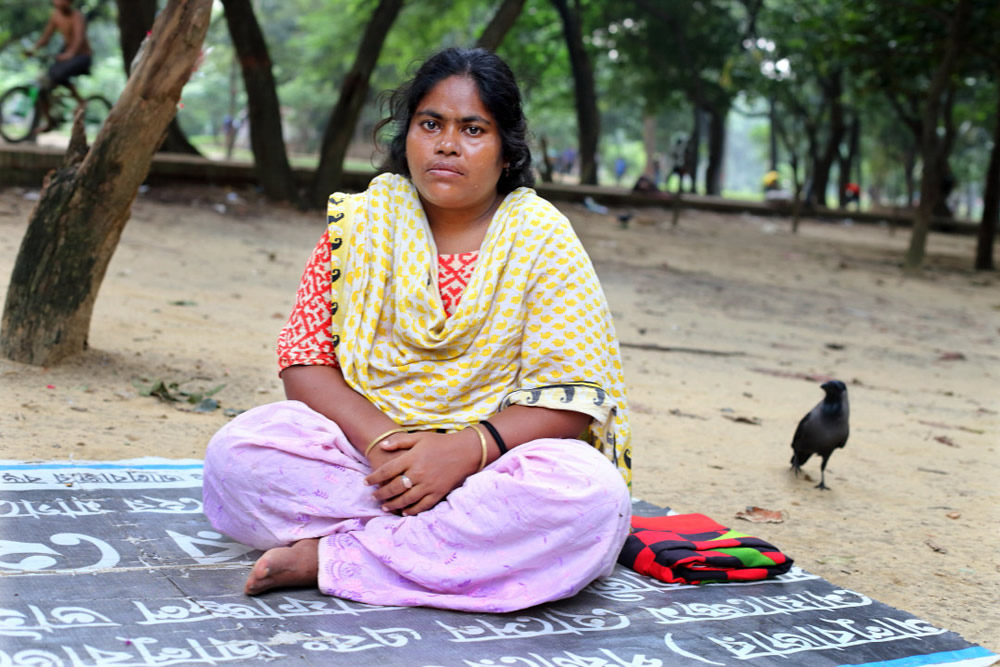
What are your thoughts on working on single images versus projects?
Working on Photo stories tends to require immense personal skills. Being able to stay in a setting for a great length of time isn’t easy. The subject has to want you there and getting to there isn’t the clear path. The story changes, life gets complicated, you have to adjust and reinterpret. Each type of story requires the same thing: the thread that holds them together. On the other hand, you can capture a story in just one image. I am not only a photographer, as a journalist, I cannot be led by interesting light or faces, I have to look for information. That’s why my focus is on creating a photo story or photo essay.
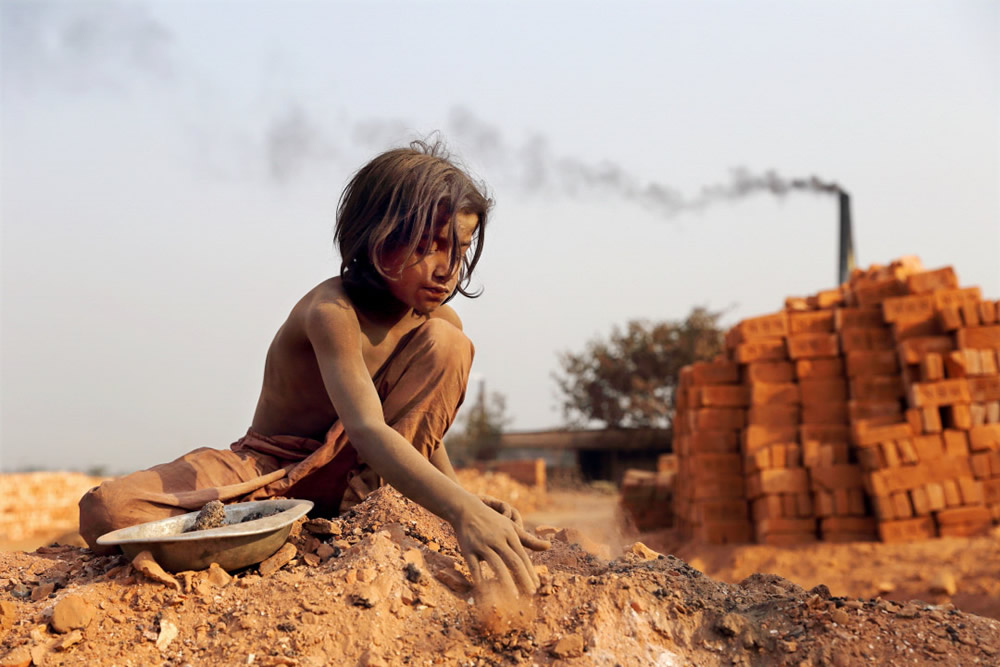
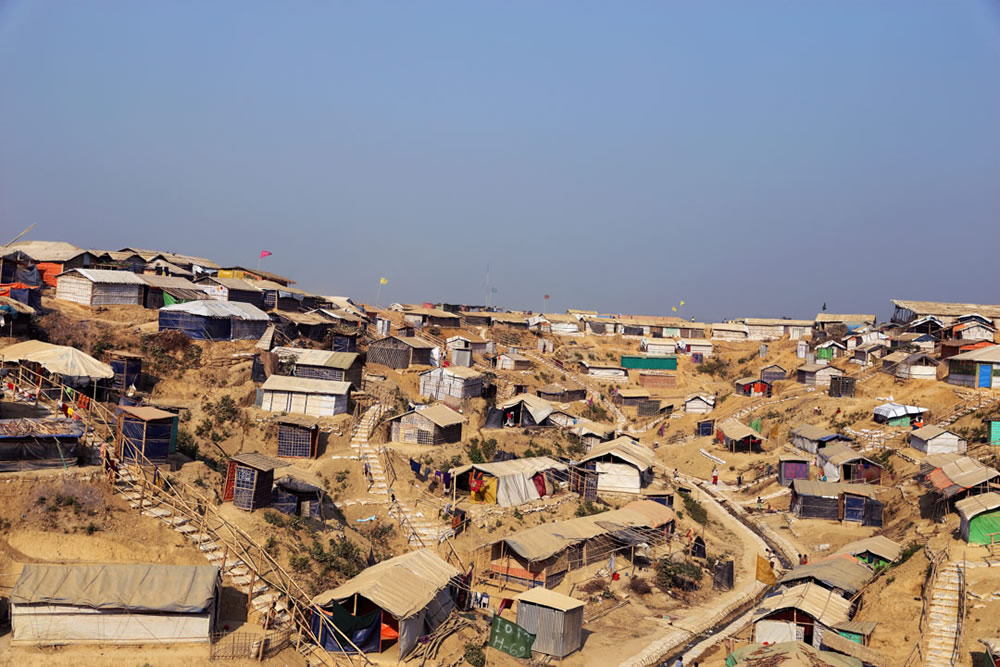
What is the best compliment you received so far?
Photography gives me an incredible passport to people’s life. I encountered astonishing human beings. My best reward is when they open their heart to me. I worked with visually impaired and deaf/mute children. A certain sense of communication was absent. Some can never see me and others may never hear me. I had to bridge that gap to bring the best visuals. I pour myself into every project I do. My best reward is when a blind child recognizes me in silence or when a deaf child gives me the sign of love. I was working with an acid survivor; I went into her hostel room and showed her the picture I made. She cannot see, so she touches for a while. I assured her, she looks beautiful in the picture, because of her aura radiate from her heart. She affectionately smiled, then replied, “I trust you; I can feel your love.” A brilliant, heartfelt compliment that penetrates into my heart and mind.
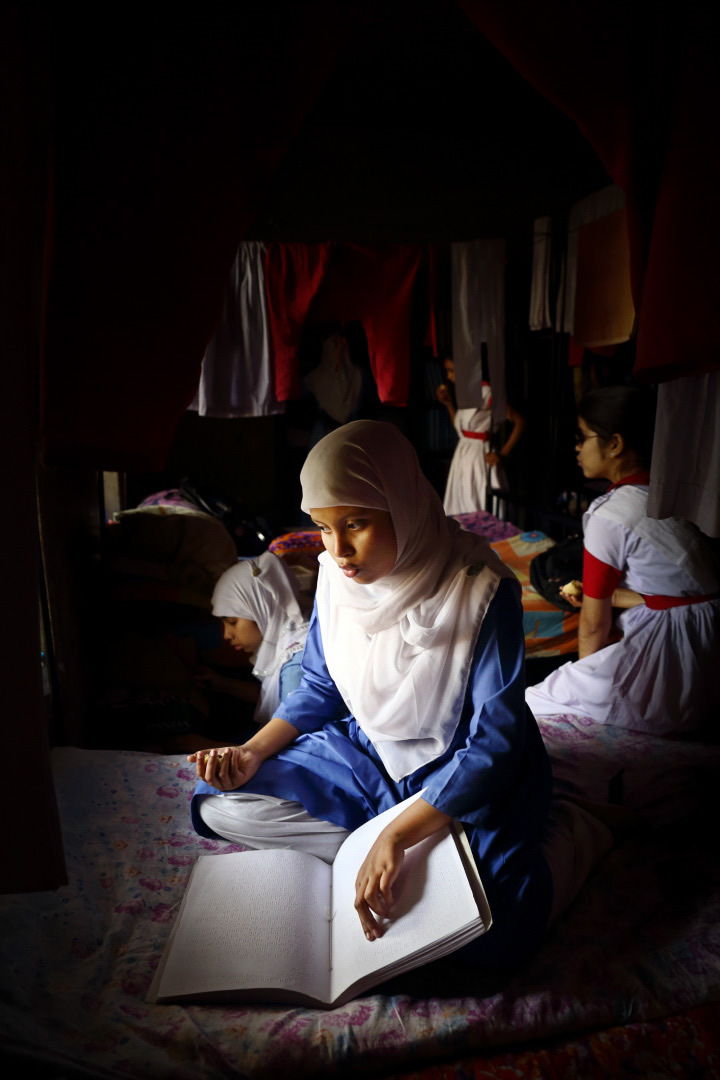
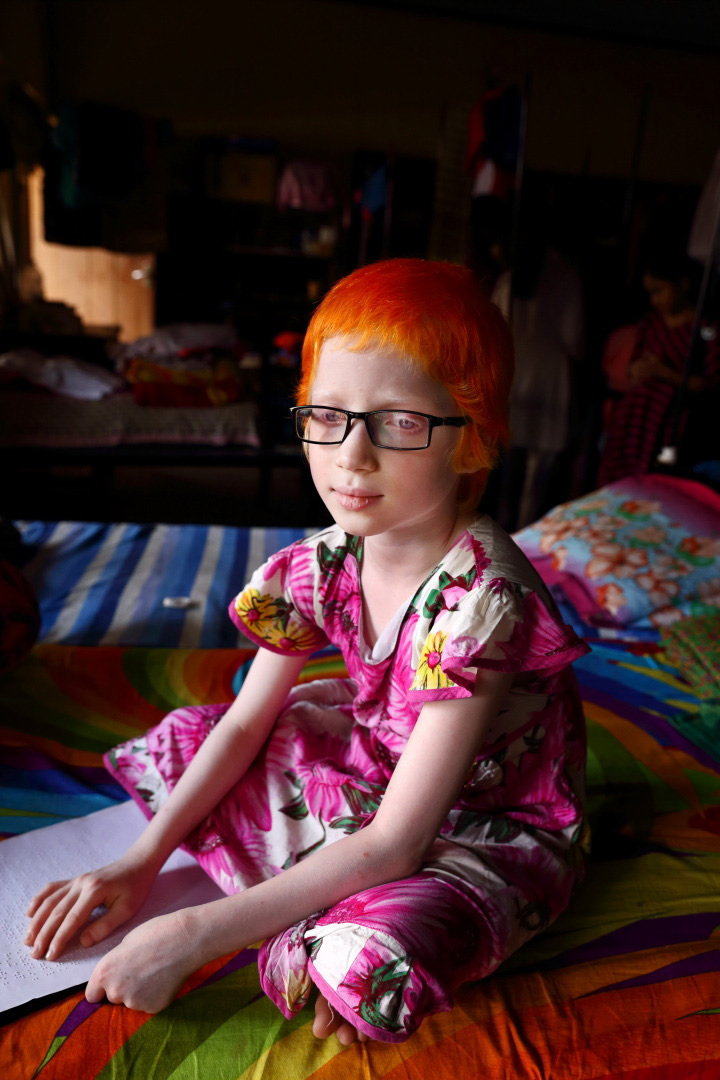
What do you do to keep motivated, and not lose your passion for photography?
Every professional photographer went through struggles. And surviving professionally as a visual female journalist of color is an everyday battle. I am a self-taught photographer. Every documentary photographer is my mentor. I read vigorously, I collect photography articles, photographer’s interview, and story ideas in my journal on daily basis.
We have to invest our time in doing research, there is a pre-visualization period. I am in constant search for stories that have universal angels. Because the photography industry is constantly looking for meaningful work; not just beautiful photographs. Under reported stores is my concentration. I immensely admire soulful works of photojournalist Shiho Fukada. The type of work I do needs time. When I am in an assignment, I always keep the customized note that I usually made upon editor’s instruction along my visualization. I shoot, I write articles, I make videos, photography is not just my passion, I live in photography.
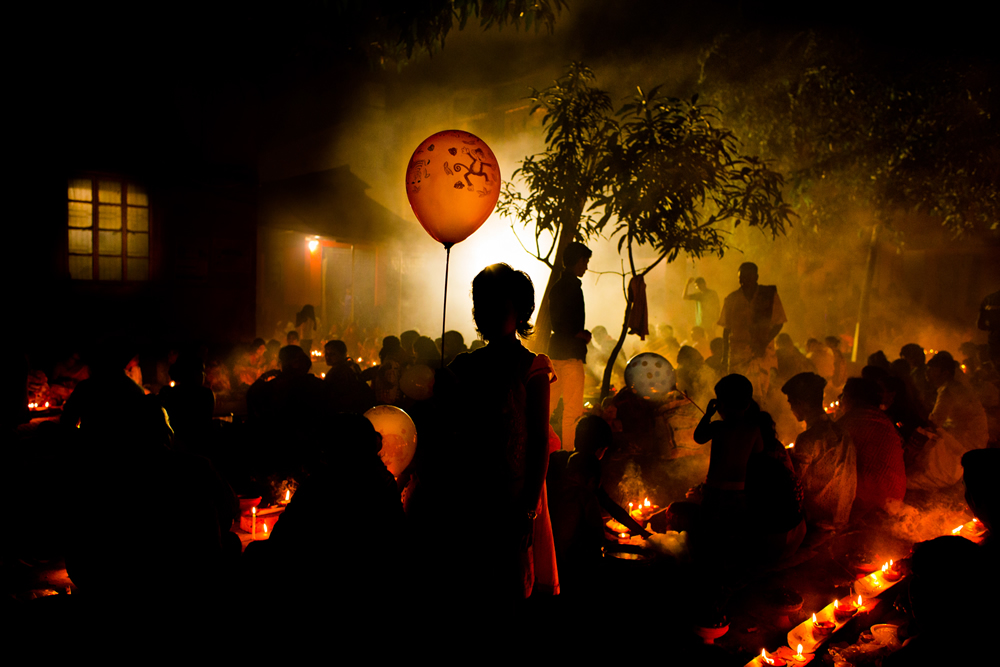

What camera and lenses do you use the majority of the time?
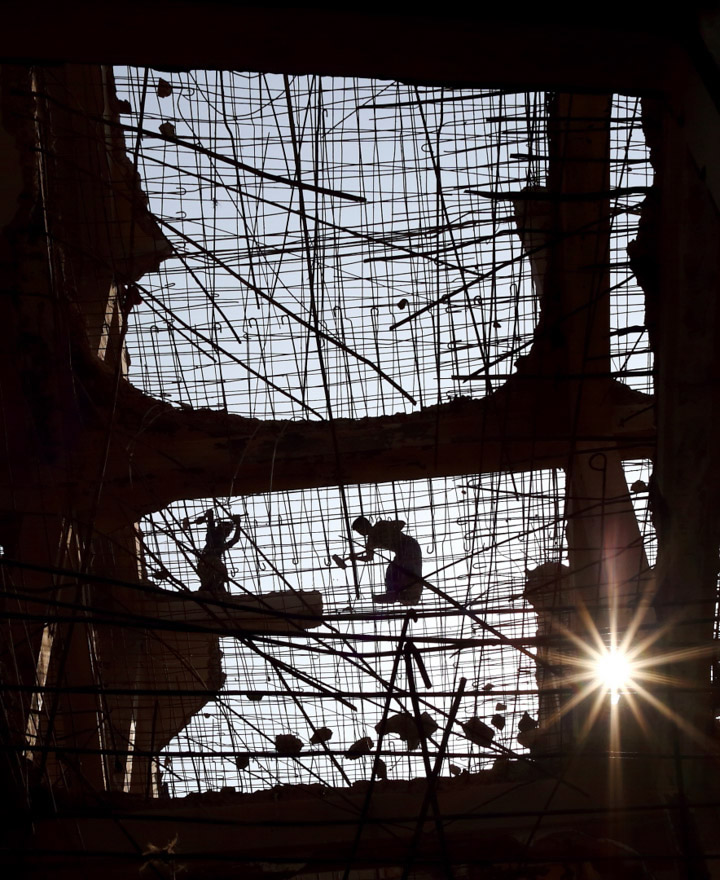
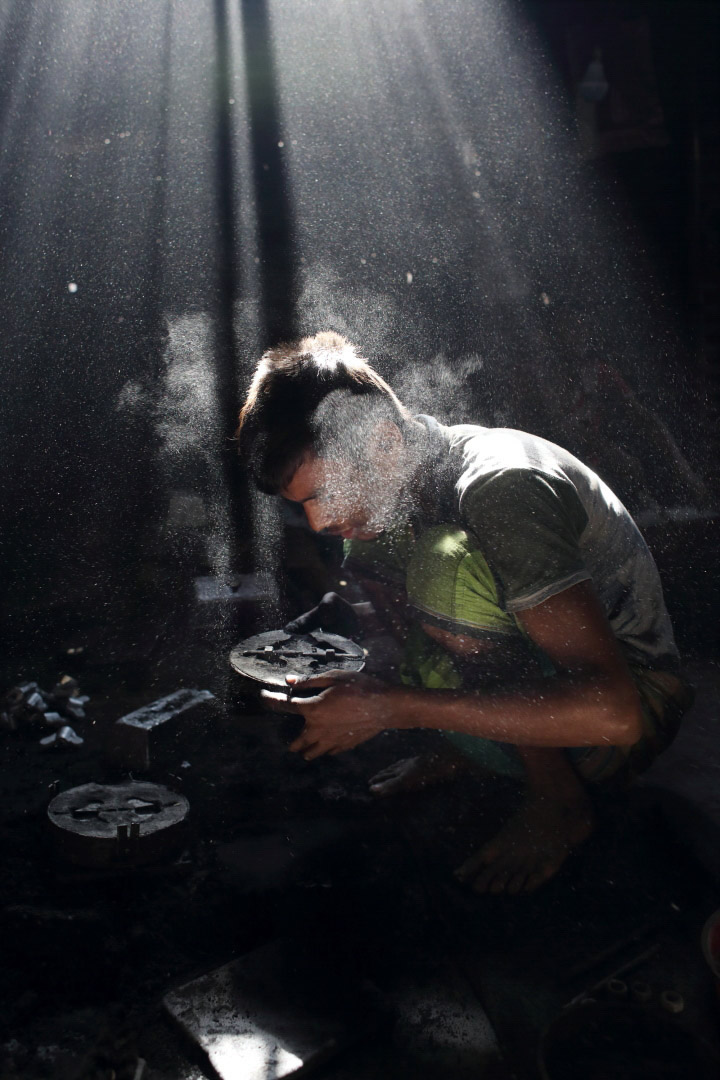
Any favorite photography books?
- Inferno by James Nachtwey
- Genesis by Sebastião Salgado
- Abandoned Moments by Ed Kashi
- Before They Pass Away by Jimmy Nelson
- It’s What I Do: A Photographer’s Life of Love and War by Lynsey Addario
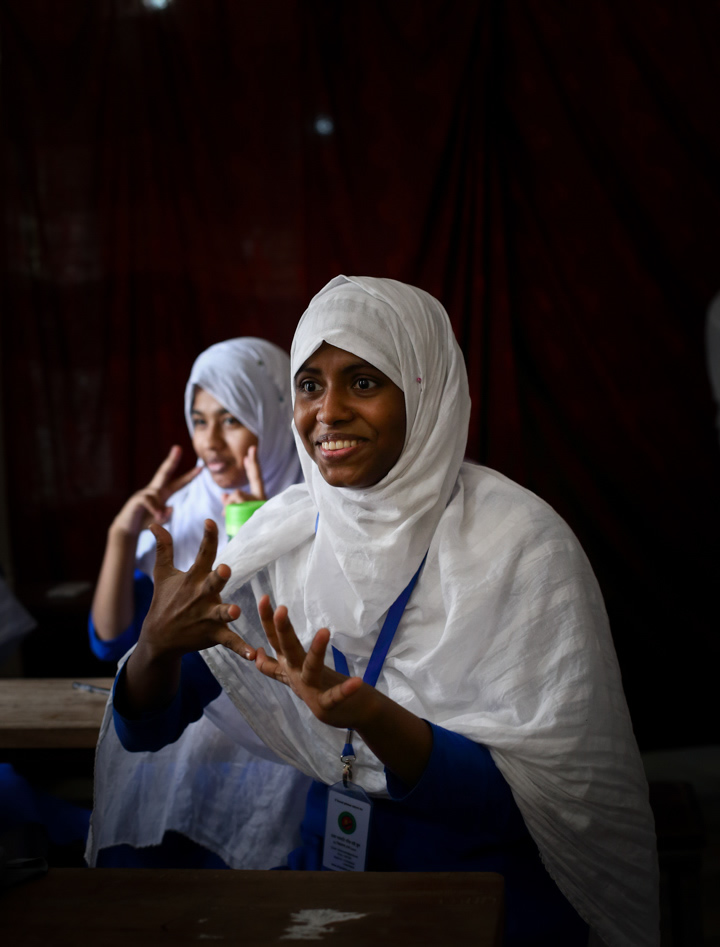
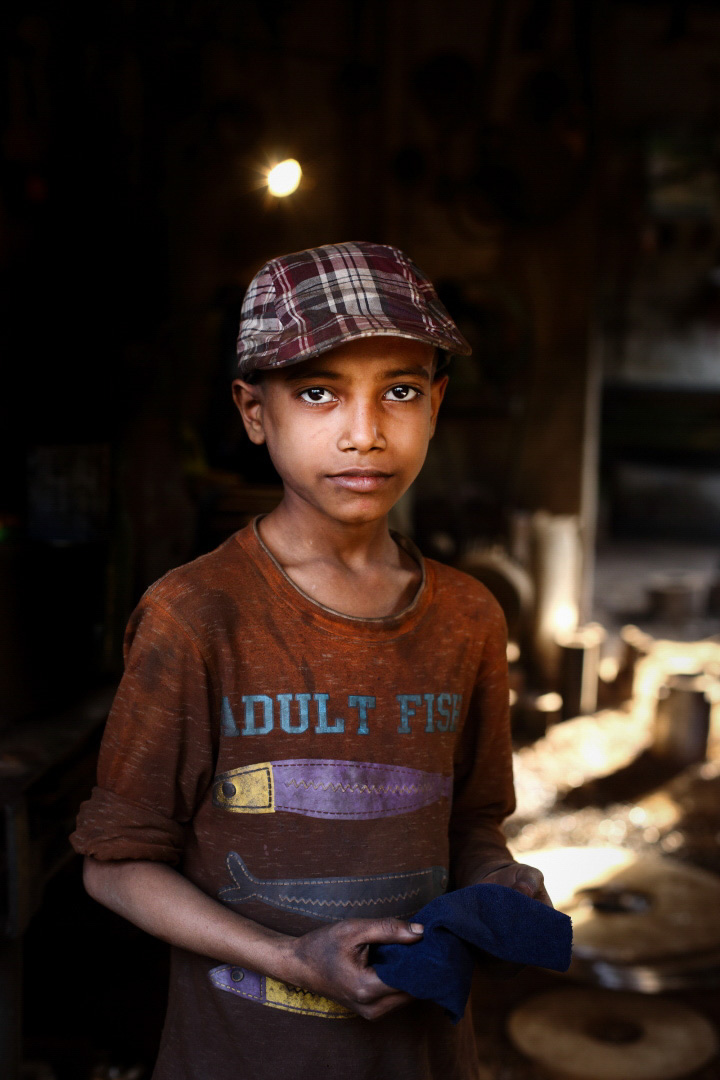
What’s your personal motto?
Fear never makes the decision for me. I don’t want comfort. I want danger. I want poetry. I want magic.
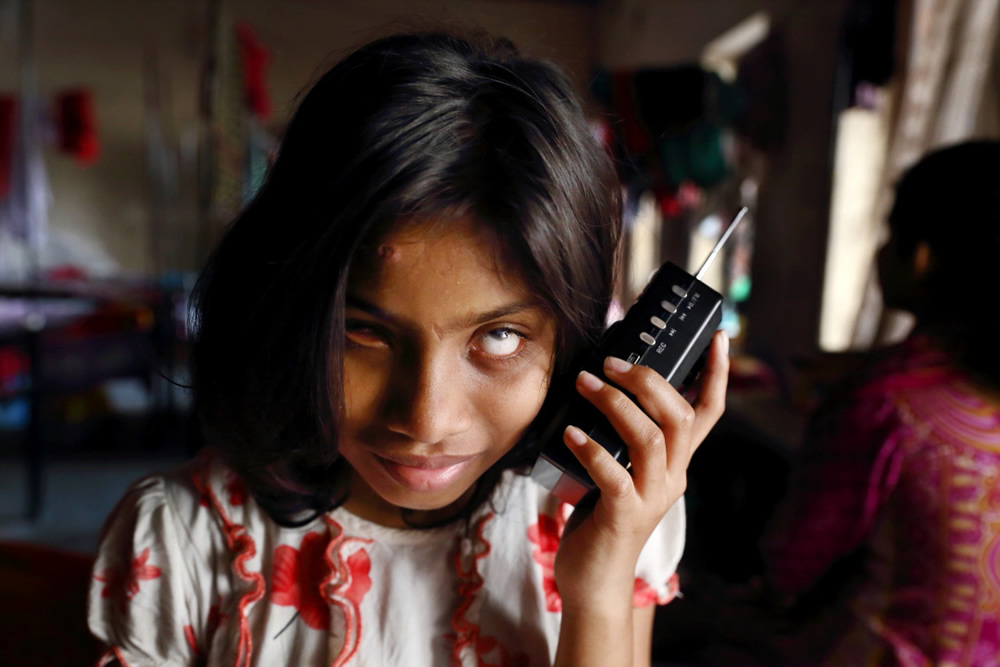
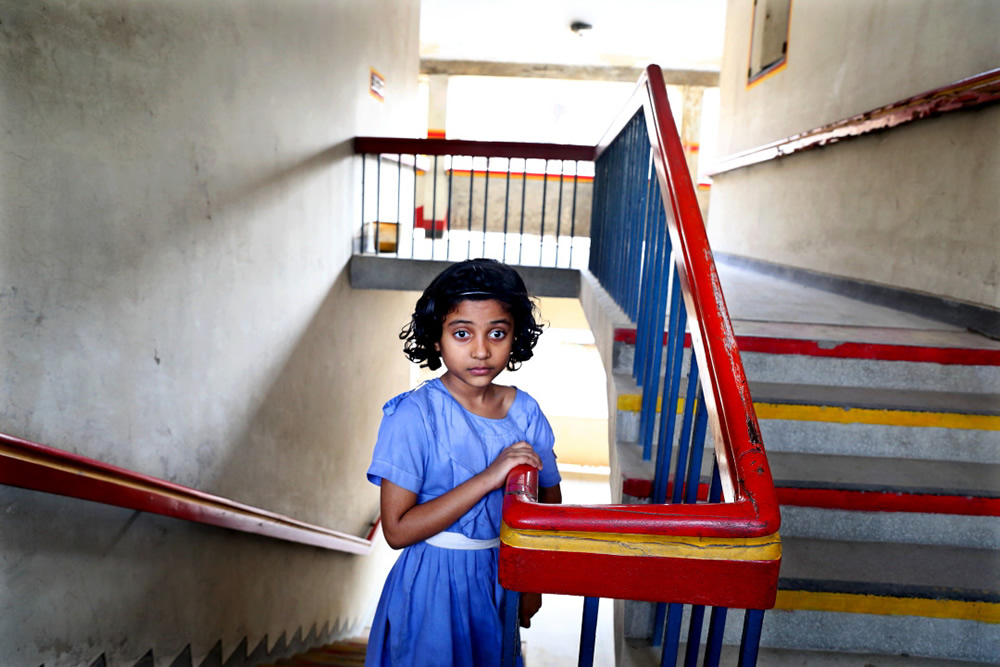
Who is your real life heroes?
My real life heroes are those who trust the voyage of their heart. They know well how to transform suffering into love, darkness into light and fragility into strength. A rape victim, Acid Attack Survivor, Single mother, Special child, blind, deaf, amputated textile worker, refugee and everyone who had suffered terribly but picked up their battles and willfully created a new life is my hero. Literally, tears are the indulgences of those who haven’t suffered enough. I salute those incredible human beings who were buried into the ground but like the air, they rise with their soul-power.

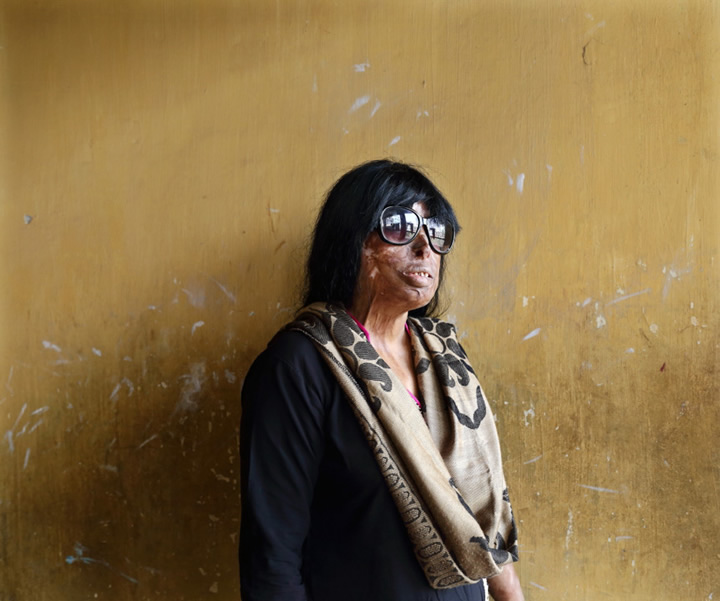
What is Love?
Love is a cup of hemlock, a mixture of heaven and hell.
What’s your goal?
My vision for the future is to ignite creative & intelligent dialogue to address social-cultural-political issues through art, photography, literature, theatre & visual art, and film. I want to show the world the strength of life, the strength of human souls in the utmost diverse condition.
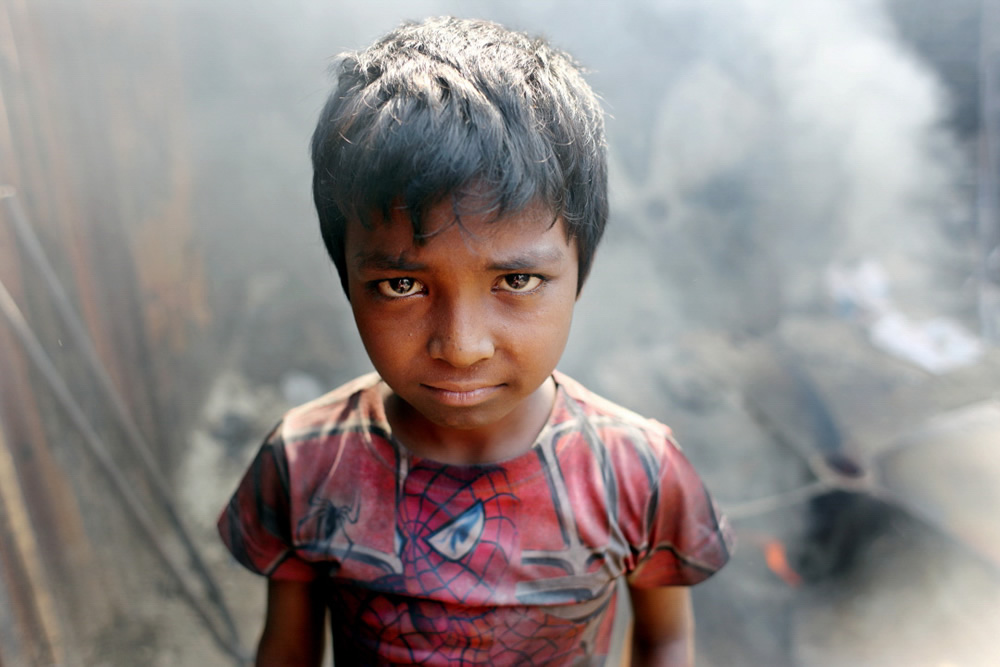
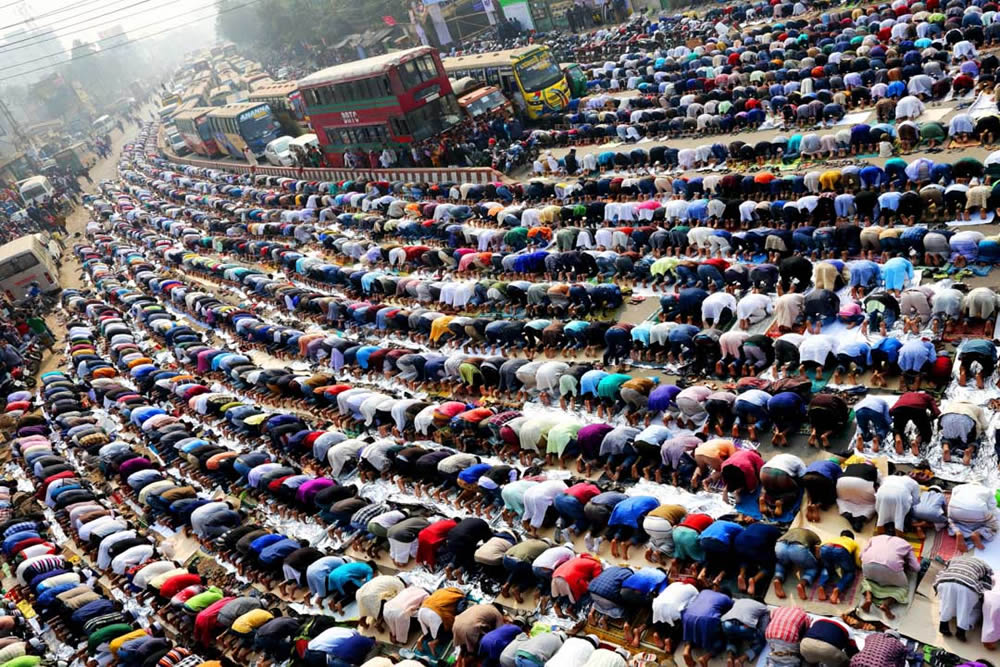
Apart from photography, tell me about your hobbies and interests?
I play the violin, often times to relax or when I am in distress. Antonio Lucio Vivaldi, the great musical composer and his “The Four Season” influenced me deeply. Many years ago I learned traditions of combat practices mainly martial arts. I am a devoted learner. Science or spiritual awakening, poetry or dance, I find profound interest in every aspect of life.
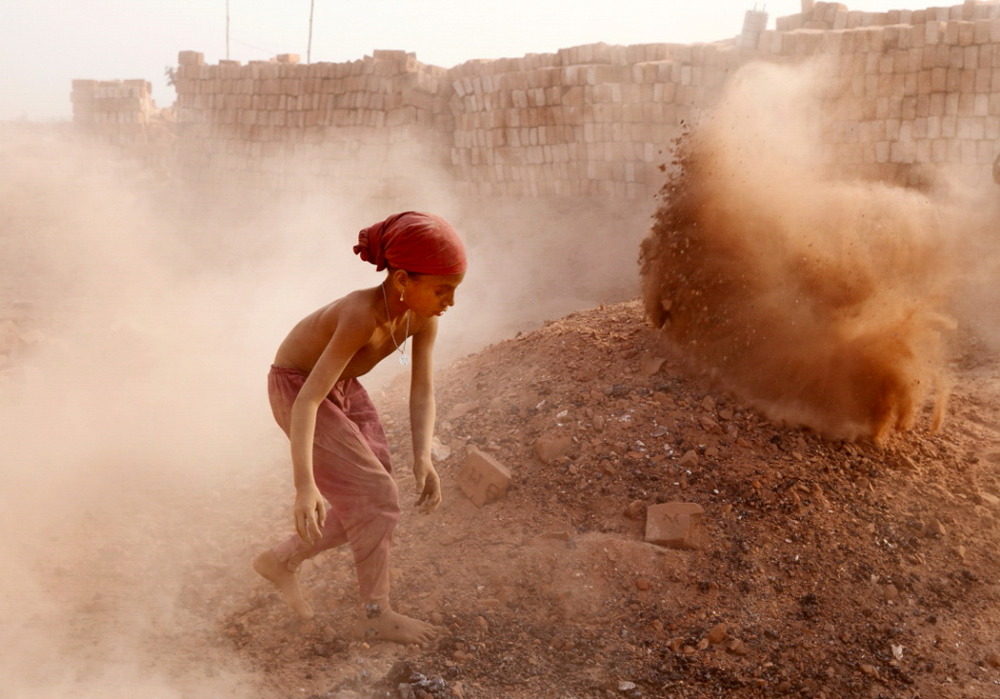
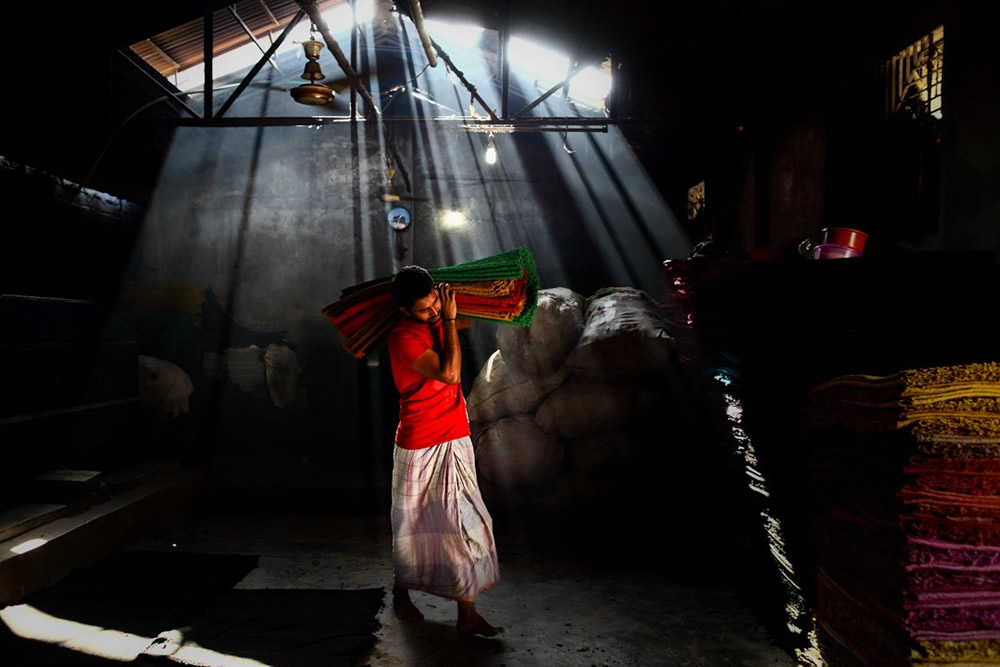
Thanks again for providing 121 Clicks with this opportunity to interview you. Any final thoughts for our readers?
My heartfelt thanks to the entire team of 121 Clicks for creating this remarkable space, applaud for your tireless contribution towards photography community.
My final thoughts for aspiring Photographers: Be authentic. Find your niche space and develop your sensitivity or sense of geometry over time. Photography is a never-ending journey. It does not happen in one click. Trust your voyage and see what you are passionate about. There is no alternative to a sustainable income, find out yours. It’s our collective responsibility to showcase works from all around the world and stick together in solidarity. Undoubtedly, this is one of the toughest careers to endure but this is also an incredibly most powerful form of communication we can create at viewers hearts. Thanks to everyone who are turning their lens on truth.
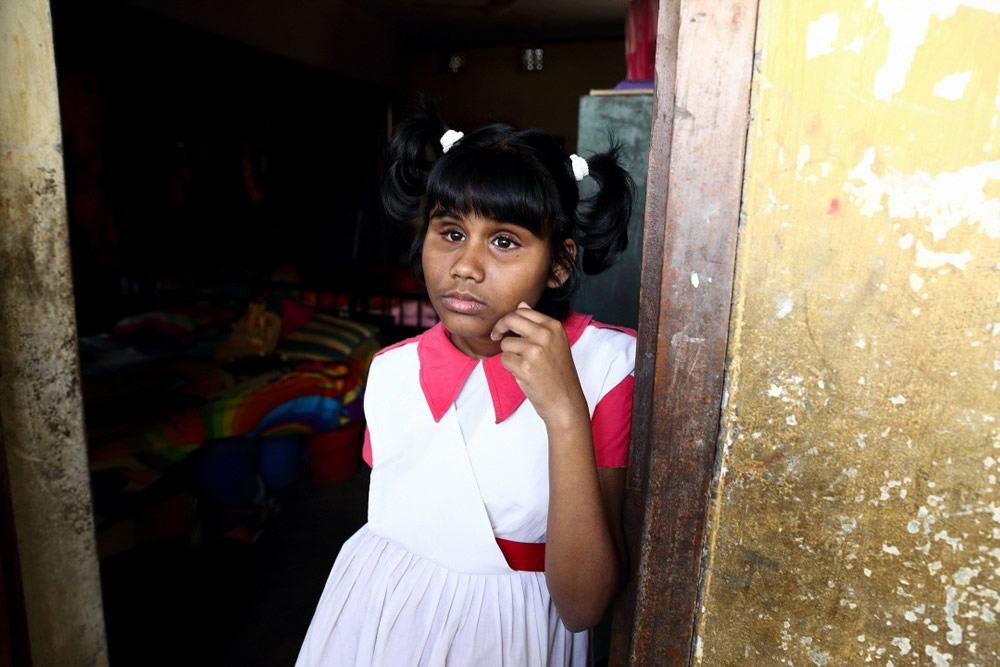
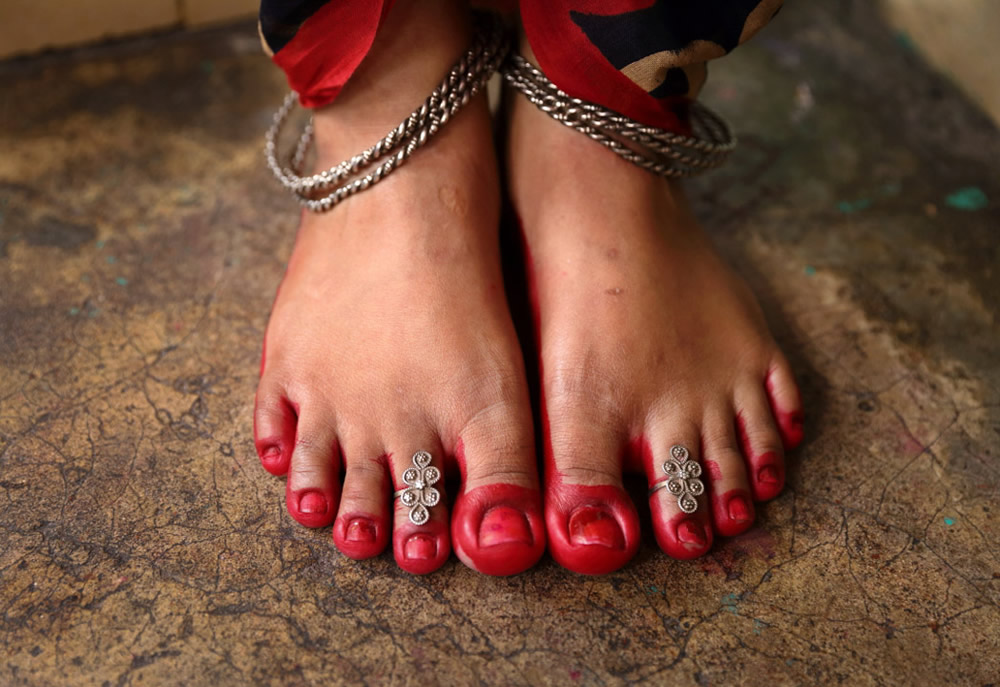
You can find Fabeha Monir on the Web:
Copyrights:
All the pictures in this post are copyrighted Fabeha Monir. Their reproduction, even in part, is forbidden without the explicit approval of the rightful owners.

